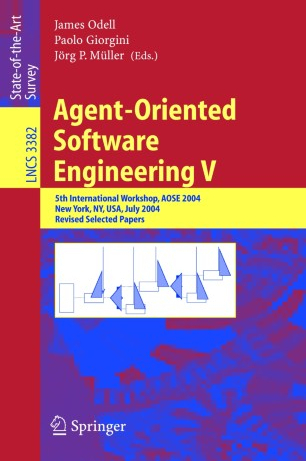
Agent-Oriented Software Engineering V
Publication year: 2005
: 978-3-540-30578-1
The explosive growth of application areas such as electronic commerce, ent- prise resource planning and mobile computing has profoundly and irreversibly changed our views on software systems. Nowadays, software is to be based on open architectures that continuously change and evolve to accommodate new components and meet new requirements. Software must also operate on di?- ent platforms, without recompilation, and with minimal assumptions about its operating environment and its users. Furthermore, software must be robust and ¨ autonomous, capable of serving a naive user with a minimum of overhead and interference. Agent concepts hold great promise for responding to the new realities of software systems. They o?er higher-level abstractions and mechanisms which address issues such as knowledge representation and reasoning, communication, coordination, cooperation among heterogeneous and autonomous parties, p- ception, commitments, goals, beliefs, and intentions, all of which need conceptual modelling. On the one hand, the concrete implementation of these concepts can lead to advanced functionalities.
: Computer Science, UML, Unified Modeling Language (UML), agent UML, agent interaction protocols, agent technology, agent-oriented software engineering, formal methods, modeling, multiagent metamodels, object-oriented programming, programming, semantics, software architecture, software patterns, ubiquitous computing